General
Office of the University Librarian
Published
16 years agoon
The University Librarian is the overall head of Makerere University Library Services, which comprise of the Main Library and seven specialised Branch Libraries. Five of these are located at the Makerere University main campus (namely: Education Library, Veterinary Medicine Library, I.A.C.E. Library, MISR Library and EASLIS Library) and two off campus (namely: Albert Cook Library at the College of Health Sciences in Mulago; and MUARIK Library at the Agricultural Institute in Kabanyolo). At the centre of the University is the Main Library, situated on Makerere Hill, opposite the Faculty of Agriculture.
Profile
Prof. Maria Musoke is heralded as being the first Uganda woman to hold a PhD in Information Science, which she obtained from the University of Sheffield, UK. She also holds a Masters of Librarianship and Information Science from the University of Wales, UK. Her other honours include a Post-graduate Diploma in Librarianship, and a Bachelor of Science and Diploma in Education both from Makerere University.
Prof. Maria Musoke started off her career as Librarian Makerere University Main Library, before becoming Librarian, Albert Cook Medical library for 4years. She then rose Senior Librarian in charge of Acquisitions and processing of Medical literature, and Deputy Librarian in-charge of the Medical Library. She was thereafter appointed Senior Librarian in charge of Albert Cook Medical Library, and later Documentalist/Senior Librarian Makerere University Library. Prof. Maria Musoke was appointed University Librarian from 2004- 2009 and then re-appointed University Librarian January 2010 – January 2015.
She has over18 publications to her name including; “Courtship Behavior in animals: an annotated bibliography E.A.S.L Kampala 1980”, “Uganda Libraries: Uganda Library Association Position Paper. In Proceedings of FES and SID Uganda Chapter Seminar, Kampala1988” and “Gender, Transformation and Empowerment: East African Women’s Conference report, edited by E. Kharono, M. Mugisha and M.G. Musoke”.
The Library
The Main Library consists of eight sections namely: Reference and Circulation – whose main functions are to register library users, handle book reservations and issue library rules and regulations; The Africana/Special Collections – the primary depository for Ugandan history consisting manuscripts, newspapers, microfilms, music and photographic collections; The Periodicals – housing print serial/journal publications obtained from a variety of sources; Law – which houses a special collection consisting of textbooks on law, human rights, bound volumes of periodicals plus law reports from Britain and Wales, America, India and Africa and Uganda.
Other sections include: The Book Bank – which maintains a database of acquired books and distributes the new processed books to respective units among other services; The International Development Agency (IDA) – which houses reference materials such as dictionaries, encyclopedias, year books, and text books for undergraduate studies; Technical Services – which provides services such as cataloguing and classification, and is out of bounds to library users; Digitisation – charged with converting manuscripts, theses and documents into digital format; and The Microfilming and Photographic section.
In addition to the seven sepcialised Branch Libraries, Makerere University Library serves as a National Reference Library. In this capacity, it is a legal depository of all works published in Uganda, including government publications. It is also the depository of United Nations' publications and related bodies. The Library also boasts of a special collection of information resources, consisting of the University archives, and the history of medicine in Uganda (located in Albert Cook Branch Library). These unique collections are preserved and provide access to interesting information on Uganda's heritage.
The University Librarian: Dr. Maria G.N. Musoke
The University Library
Makerere University
P.O. Box 7062, Kampala, Uganda
Tel: +256 414 533735
Fax: +256 414 540374
Email: universitylibrarian[at]mulib.mak.ac.ug or mmusoke[at]mulib.mak.ac.ug
Deputy University Librarian (Administration): Mr. Robert Kakembo
The University Library
Makerere University
P.O. Box 7062, Kampala, Uganda
Tel: +256 414 540375
Fax: +256 414 540374
Email: rjkkakembo[at]mulib.mak.ac.ug
Head, Reference and Circulation: Mr. Charles B. Hashakimana
The University Library
Makerere University
P.O. Box 7062, Kampala, Uganda
E-Mail: hashaka[at]mulib.mak.ac.ug
Head, Africana/Special Collections: Ms. Margaret Nakiganda
The University Library
Makerere University
P.O. Box 7062, Kampala, Uganda
E-Mail: nakiganda[at]mulib.mak.ac.ug
Head, Periodicals: Ms. Faith Akiteng
The University Library
Makerere University
P.O. Box 7062, Kampala, Uganda
E-Mail: faitha[at]mulib.mak.ac.ug
Head, Law: Ms. Carol Ilako
The University Library
Makerere University
P.O. Box 7062, Kampala, Uganda
Email: cilako[at]mulib.mak.ac.ug
Head, Book Bank: Ms. Helen Byamugisha
The University Library
Makerere University
P.O. Box 7062, Kampala, Uganda
Email: hbyamugisha[at]mulib.mak.ac.ug
Head, IDA: Mr. Fredrick K Lugya
The University Library
Makerere University
P.O. Box 7062, Kampala, Uganda
Email: flugya[at]mulib.mak.ac.ug
Head, Technical Services & ICT: Ms. Eliz Nassali State
The University Library
Makerere University
P.O. Box 7062, Kampala, Uganda
Email: state[at]mulib.mak.ac.ug
Ag. Head, Microfilming and Photography: Ms. Monica Naluwooza
The University Library
Makerere University
P.O. Box 7062, Kampala, Uganda
Email: mnaluwoza[at]mulib.mak.ac.ug
Head, Digitization: Ms. Miriam Kakai
The University Library
Makerere University
P.O. Box 7062, Kampala, Uganda
Email: m5kakai[at]mulib.mak.ac.ug
For more information please visit the Library page at http://mulib.mak.ac.ug
The University Librarian is the overall head of Makerere University Library Services, which comprise of the Main Library and seven specialised Branch Libraries. Five of these are located at the Makerere University main campus (namely: Education Library, Veterinary Medicine Library, I.A.C.E. Library, MISR Library and EASLIS Library) and two off campus (namely: Albert Cook Library at the College of Health Sciences in Mulago; and MUARIK Library at the Agricultural Institute in Kabanyolo). At the centre of the University is the Main Library, situated on Makerere Hill, opposite the Faculty of Agriculture.
Profile
Prof. Maria Musoke is heralded as being the first Uganda woman to hold a PhD in Information Science, which she obtained from the University of Sheffield, UK. She also holds a Masters of Librarianship and Information Science from the University of Wales, UK. Her other honours include a Post-graduate Diploma in Librarianship, and a Bachelor of Science and Diploma in Education both from Makerere University.
Prof. Maria Musoke started off her career as Librarian Makerere University Main Library, before becoming Librarian, Albert Cook Medical library for 4years. She then rose Senior Librarian in charge of Acquisitions and processing of Medical literature, and Deputy Librarian in-charge of the Medical Library. She was thereafter appointed Senior Librarian in charge of Albert Cook Medical Library, and later Documentalist/Senior Librarian Makerere University Library. Prof. Maria Musoke was appointed University Librarian from 2004- 2009 and then re-appointed University Librarian January 2010 – January 2015.
She has over18 publications to her name including; “Courtship Behavior in animals: an annotated bibliography E.A.S.L Kampala 1980”, “Uganda Libraries: Uganda Library Association Position Paper. In Proceedings of FES and SID Uganda Chapter Seminar, Kampala1988” and “Gender, Transformation and Empowerment: East African Women’s Conference report, edited by E. Kharono, M. Mugisha and M.G. Musoke”.
The Library
The Main Library consists of eight sections namely: Reference and Circulation – whose main functions are to register library users, handle book reservations and issue library rules and regulations; The Africana/Special Collections – the primary depository for Ugandan history consisting manuscripts, newspapers, microfilms, music and photographic collections; The Periodicals – housing print serial/journal publications obtained from a variety of sources; Law – which houses a special collection consisting of textbooks on law, human rights, bound volumes of periodicals plus law reports from Britain and Wales, America, India and Africa and Uganda.
Other sections include: The Book Bank – which maintains a database of acquired books and distributes the new processed books to respective units among other services; The International Development Agency (IDA) – which houses reference materials such as dictionaries, encyclopedias, year books, and text books for undergraduate studies; Technical Services – which provides services such as cataloguing and classification, and is out of bounds to library users; Digitisation – charged with converting manuscripts, theses and documents into digital format; and The Microfilming and Photographic section.
In addition to the seven sepcialised Branch Libraries, Makerere University Library serves as a National Reference Library. In this capacity, it is a legal depository of all works published in Uganda, including government publications. It is also the depository of United Nations' publications and related bodies. The Library also boasts of a special collection of information resources, consisting of the University archives, and the history of medicine in Uganda (located in Albert Cook Branch Library). These unique collections are preserved and provide access to interesting information on Uganda's heritage.
The University Librarian: Dr. Maria G.N. Musoke
The University Library
Makerere University
P.O. Box 7062, Kampala, Uganda
Tel: +256 414 533735
Fax: +256 414 540374
Email: universitylibrarian[at]mulib.mak.ac.ug or mmusoke[at]mulib.mak.ac.ug
Deputy University Librarian (Administration): Mr. Robert Kakembo
The University Library
Makerere University
P.O. Box 7062, Kampala, Uganda
Tel: +256 414 540375
Fax: +256 414 540374
Email: rjkkakembo[at]mulib.mak.ac.ug
Head, Reference and Circulation: Mr. Charles B. Hashakimana
The University Library
Makerere University
P.O. Box 7062, Kampala, Uganda
E-Mail: hashaka[at]mulib.mak.ac.ug
Head, Africana/Special Collections: Ms. Margaret Nakiganda
The University Library
Makerere University
P.O. Box 7062, Kampala, Uganda
E-Mail: nakiganda[at]mulib.mak.ac.ug
Head, Periodicals: Ms. Faith Akiteng
The University Library
Makerere University
P.O. Box 7062, Kampala, Uganda
E-Mail: faitha[at]mulib.mak.ac.ug
Head, Law: Ms. Carol Ilako
The University Library
Makerere University
P.O. Box 7062, Kampala, Uganda
Email: cilako[at]mulib.mak.ac.ug
Head, Book Bank: Ms. Helen Byamugisha
The University Library
Makerere University
P.O. Box 7062, Kampala, Uganda
Email: hbyamugisha[at]mulib.mak.ac.ug
Head, IDA: Mr. Fredrick K Lugya
The University Library
Makerere University
P.O. Box 7062, Kampala, Uganda
Email: flugya[at]mulib.mak.ac.ug
Head, Technical Services & ICT: Ms. Eliz Nassali State
The University Library
Makerere University
P.O. Box 7062, Kampala, Uganda
Email: state[at]mulib.mak.ac.ug
Ag. Head, Microfilming and Photography: Ms. Monica Naluwooza
The University Library
Makerere University
P.O. Box 7062, Kampala, Uganda
Email: mnaluwoza[at]mulib.mak.ac.ug
Head, Digitization: Ms. Miriam Kakai
The University Library
Makerere University
P.O. Box 7062, Kampala, Uganda
Email: m5kakai[at]mulib.mak.ac.ug
For more information please visit the Library page at http://mulib.mak.ac.ug
You may like
General
Strengthening Global Partnerships to Advance Research, Innovation, and Graduate Training: Makerere University Hosts Delegation from the University of Warwick
Published
1 day agoon
February 19, 2026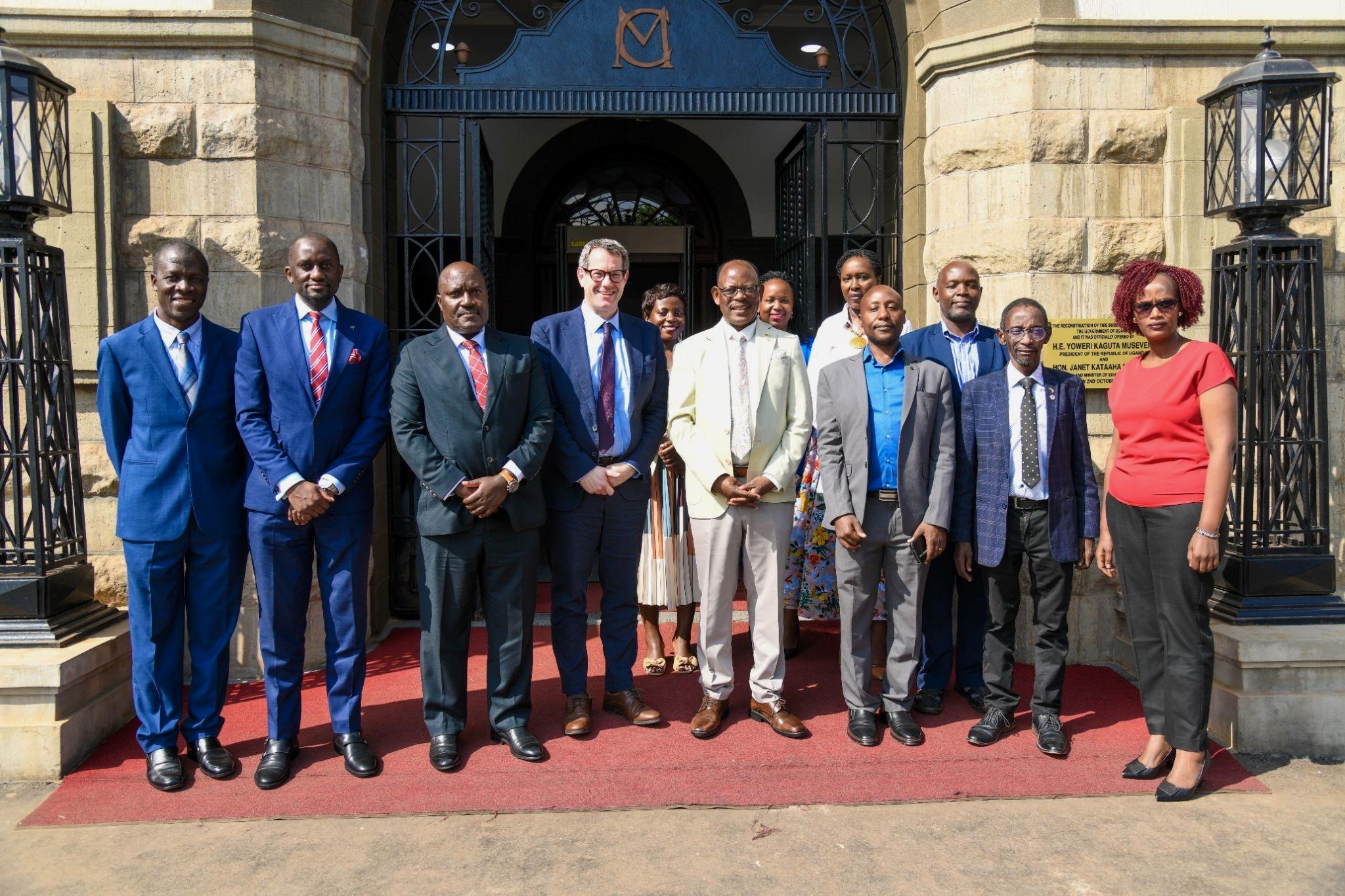
Makerere University continues to deepen its global engagement agenda through strategic partnerships that enhance research, innovation, and graduate training. On Friday, 13th February, 2025, during a recent engagement with a delegation from the University of Warwick (UK), university leaders, researchers, and administrators explored potential collaborations to address pressing development challenges and strengthen institutional capacity.
Expanding Collaboration in Research and Innovation
Welcoming the delegation, Prof. Fred Masagazi-Masaazi, Chairperson of the Makerere University Research and Innovations Fund (Mak-RIF) Grants Management Committee, emphasized the growing dialogue between Makerere University and the University of Warwick. He noted that ongoing discussions are focused on resource mobilization to support research and innovation, as well as building sustainable academic exchanges for both staff and students.
Dr. Roy Mayega, Mak-RIF Coordinator, together with Mrs. Phoebe Lutaaya Kamya, Deputy Coordinator, and members of the Mak-RIF team, highlighted the Fund’s role in catalyzing collaborative research and strengthening partnerships that translate research into societal impact.
Mr. Simon Kizito, Deputy University Secretary, outlined key areas identified for collaboration, including joint research and innovation initiatives, benchmarking visits across disciplines such as law, science, and ICT, and student exchanges designed to strengthen applied research skills. He also pointed to opportunities for training Makerere staff in specialized areas such as tropical diseases and innovation ecosystems, drawing lessons from Warwick’s strong linkages with industry partners located within its campus.
Makerere’s Strategic Priorities and Global Role
In his remarks, the Vice Chancellor underscored the longstanding relationship between Makerere University and the University of Warwick, dating back to the early 1980s, initially through staff training and more recently through collaborative research.
He highlighted Makerere’s historic contribution to leadership development across Africa and beyond, and the University’s continued growth following faculty rebuilding efforts in the 1980s, which have strengthened its research capacity. Today, Makerere has over 1,300 academic staff, more than 1,000 of whom hold PhDs, positioning the institution to play a leading role in knowledge production.
The Vice Chancellor also outlined major thematic areas where partnerships are critical:
- Climate change and food security: Researchers at the College of Agricultural and Environmental Sciences (CAES) are developing drought-resistant and high-yield seed varieties to address changing weather patterns and food insecurity.
- Public health and infectious diseases: Uganda faces frequent outbreaks of diseases such as Ebola and Marburg, and Makerere has built strong capacity in outbreak response and tropical medicine. The University’s medical school and the Infectious Diseases Institute (IDI) continue to play a pivotal role in research and treatment.
- Peace and conflict studies: Through initiatives such as the Rotary Peace Centre, Makerere contributes to training global leaders in conflict resolution.
- Climate-sensitive macroeconomic modelling: Makerere recently hosted a conference in collaboration with the Ministry of Finance, Planning and Economic Development to advocate for climate-responsive macroeconomic modelling and to plan for the establishment of a Centre of Excellence in this field.
- Innovation and technology: The University’s innovation ecosystem has produced notable outputs, including Africa’s first electric vehicle and ongoing work to expand incubation facilities to enable students to graduate with viable enterprises.
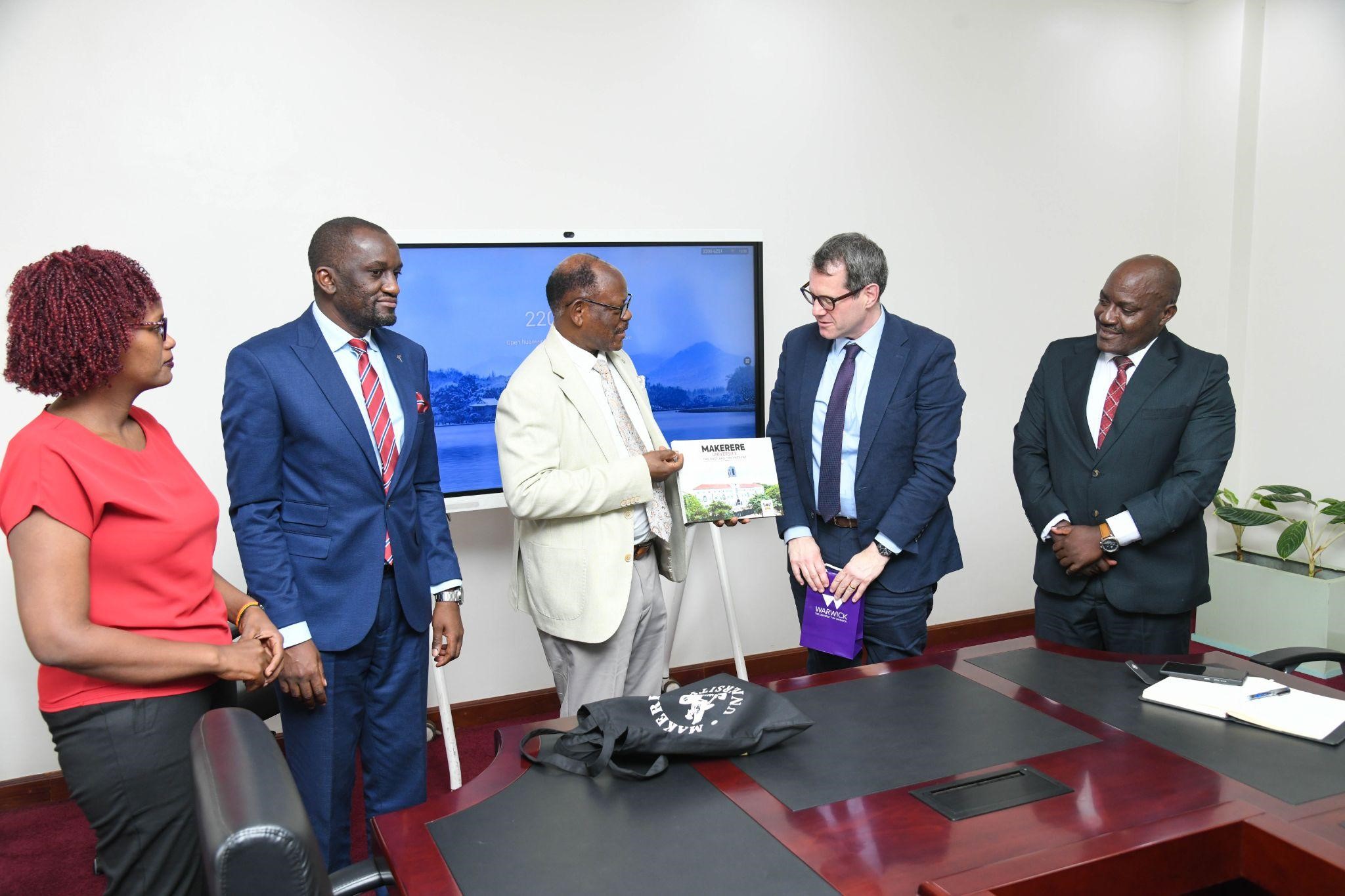
The Vice Chancellor emphasized that addressing youth unemployment remains a central priority, noting that innovation, entrepreneurship, and graduate training are essential to building stable societies.
He further stressed the importance of expanding graduate education. Africa currently produces a small proportion of global research output, and increasing PhD and Master’s training supported by international partnerships remains critical to accelerating knowledge production and development outcomes.
Internationalization and Shared Learning
Speaking on behalf of the University of Warwick, Professor Daniel Branch, Deputy Vice Chancellor, reflected on Warwick’s own institutional journey, noting that its growth has been driven by a strong focus on internationalization, innovation, and research. He expressed Warwick’s commitment to building productive partnerships with African universities, including Makerere, to advance joint research, training, and innovation.
Professor Branch also highlighted the importance of university-industry linkages, citing examples such as collaborations with major manufacturing firms that provide practical training opportunities and inform curriculum development.
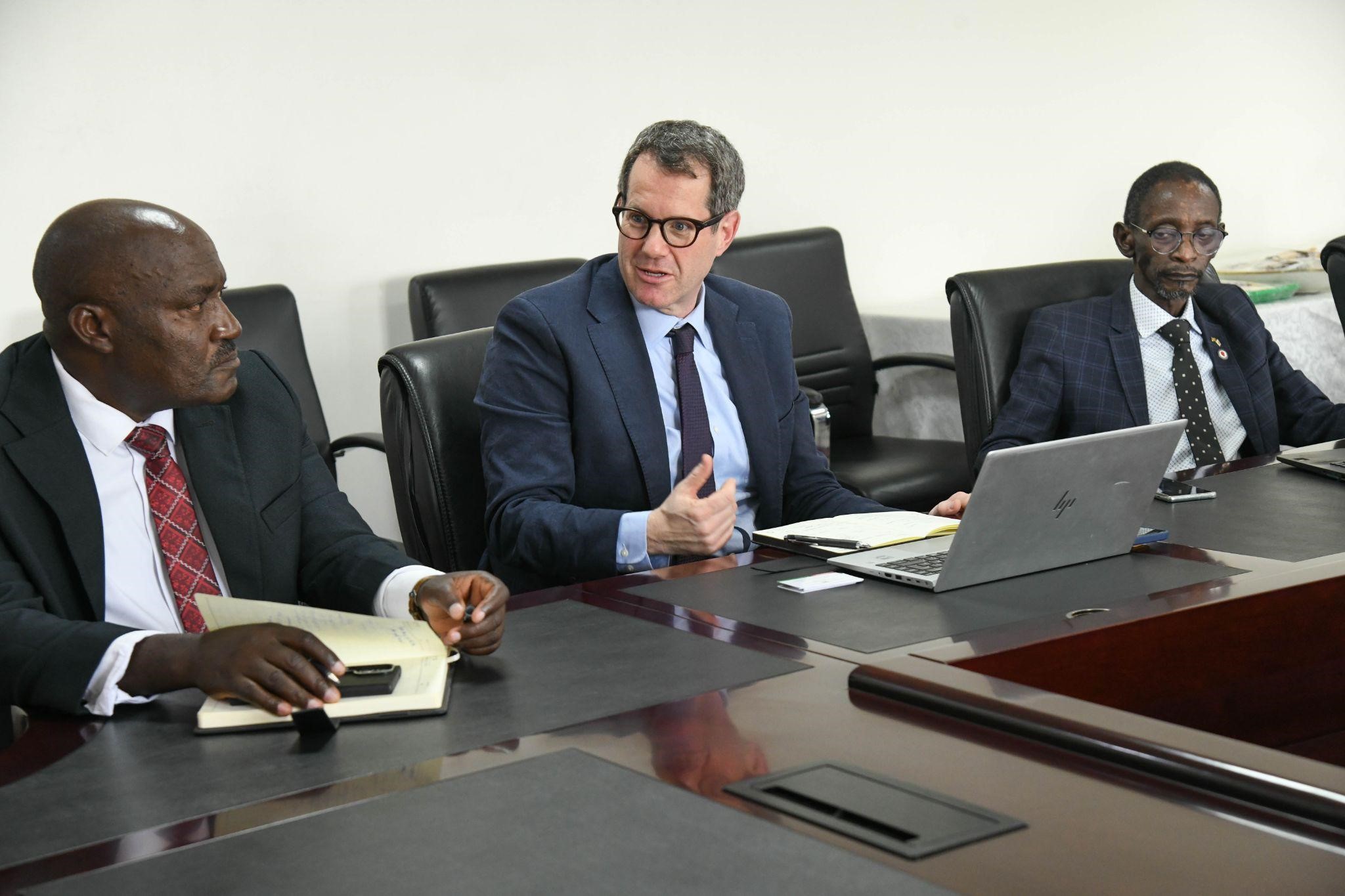
Showcasing Research and Innovation at CEDAT
A second session of the engagement was held at the College of Engineering, Design, Art and Technology (CEDAT), where academic leaders and researchers presented ongoing work across multiple disciplines.
Presentations included:
- Development of a solar water pump through reverse engineering (Dr. Edmund Tumusiime)
- Crane Cloud, a locally developed cloud-computing platform (team from the College of Computing and Information Sciences)
- Profiling gaseous emissions associated with burnt bricks (Dr. Nathan)
- Integration of centralized grid and decentralized renewable off-grid systems: a techno-economic analysis (Dr. Abubaker Waswa)
- Innovation and digitalization pathways for affordable housing in Sub-Saharan Africa (Prof. Stephen Mukiibi)
The session was attended by CEDAT leadership, including the Principal, Prof. Moses Musinguzi, as well as deans and heads of department from engineering, built environment, and industrial and fine arts. The day’s activities were concluded with a tour of Makerere University’s Innovation Hub.
The engagement reaffirmed Makerere University’s commitment to building strong, mutually beneficial partnerships that accelerate research, strengthen graduate training, and drive innovation. As global challenges such as climate change, public health threats, and youth unemployment intensify, collaboration among universities remains essential to developing scalable, evidence-based solutions.
Through partnerships such as the one Makerere University and the University of Warwick hope to activate through a Memorandum of Understanding in the near future, Makerere continues to position itself as a leading research-intensive university dedicated to transforming society through knowledge, innovation, and global cooperation.
Caroline Kainomugisha is the Communications Officer, Advancement Office, Makerere University.
General
Mastercard Foundation Scholars embrace and honour their rich cultural diversity
Published
2 days agoon
February 18, 2026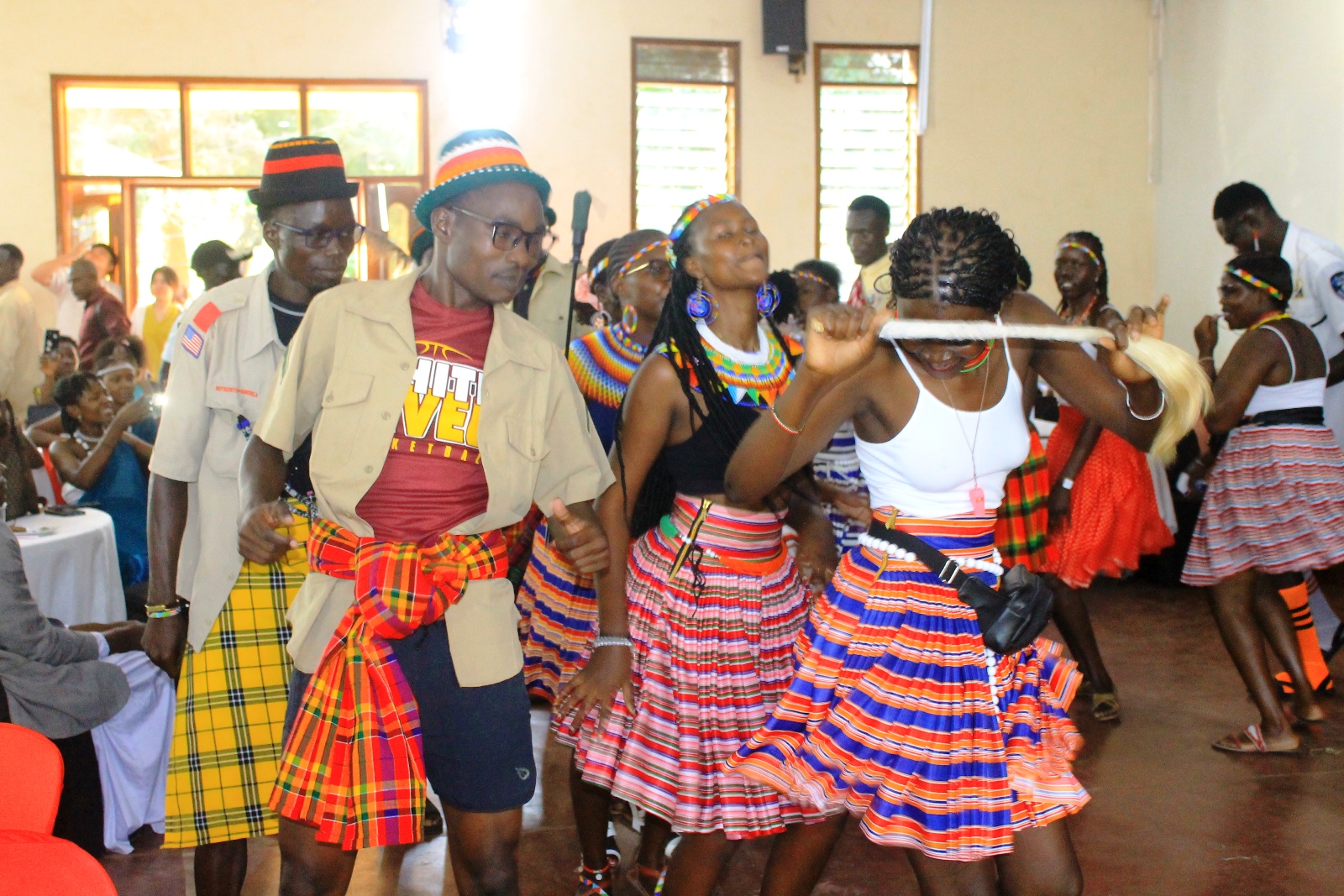
On the evening of Friday, 13th February 2026, the Scholars of Mastercard Foundation embraced the new semester with enthusiasm and celebration, showcasing their rich cultural diversity at the annual cultural dinner. This event not only fostered a sense of community but also highlighted the importance of cultural exchange and understanding among the scholars. The purpose of the cultural dinner is to foster unity in diversity within the Scholars community and to enable young people to appreciate and respect each other’s cultural differences.
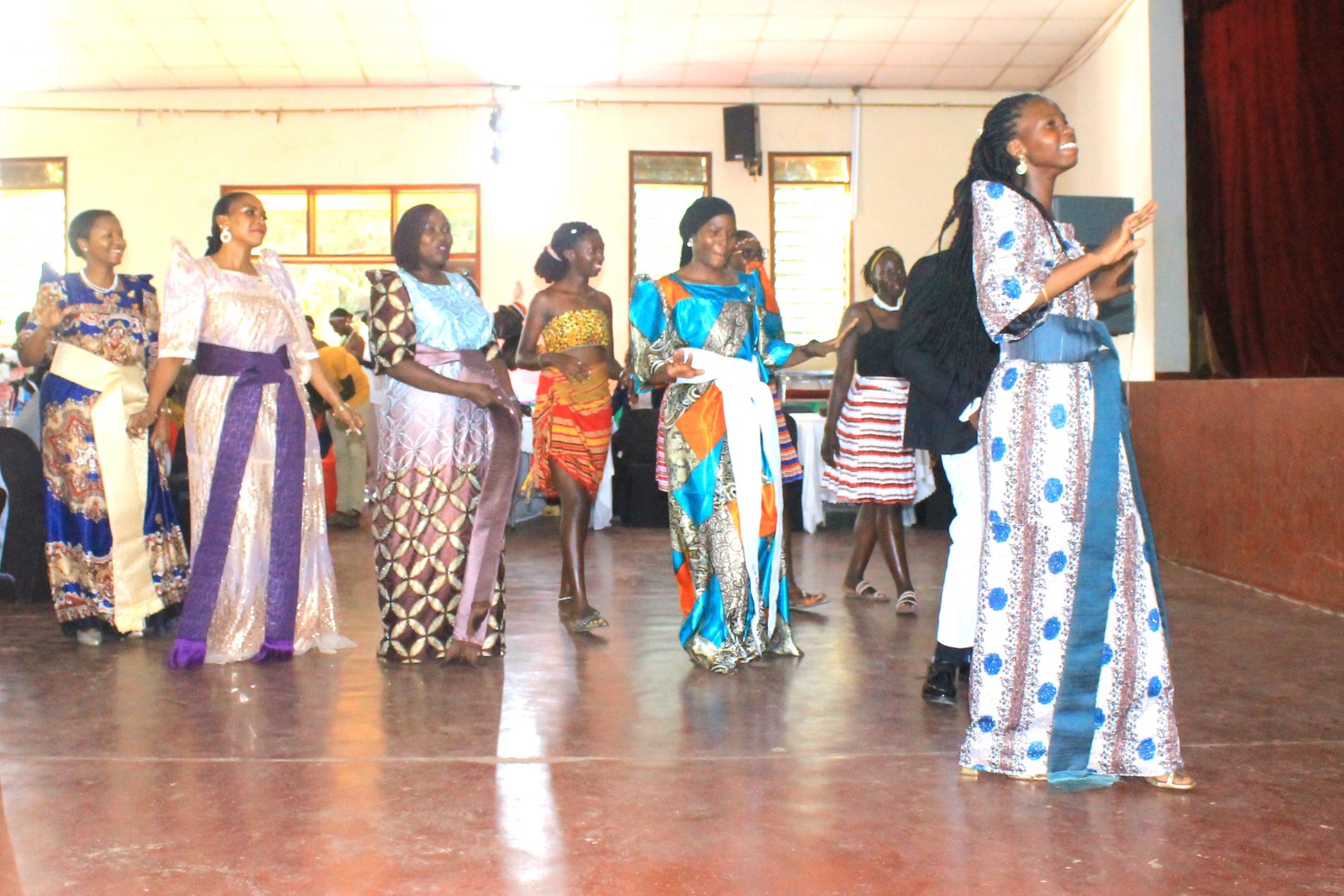
The Mastercard Foundation Scholars community at Makerere University is a vibrant tapestry of countries, cultures, and backgrounds. In recognition of this richness, the Program team has proposed organising an annual cultural dinner to kick off each new semester. This event aims to achieve several important objectives:
- Promote mutual understanding and cross-cultural appreciation among Scholars.
- Celebrate and highlight the unique cultural identities within our community.
- Encourage confidence and creativity through a dynamic talent showcase.
- Foster a sense of unity and excitement as we embark on the new academic semester together.
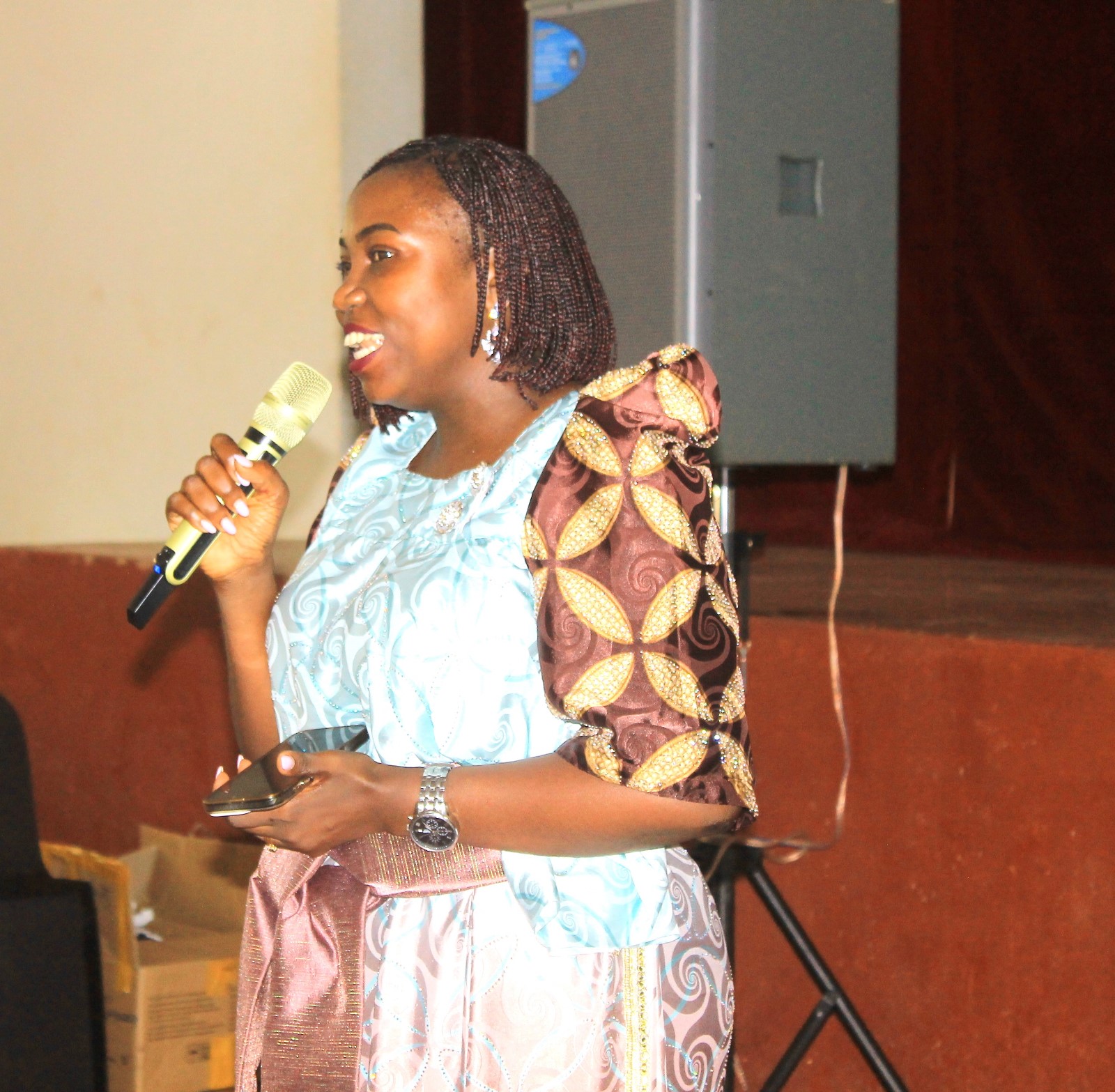
During the event, the Scholars proudly showcased their diverse cultures through a vibrant display of traditional attire, engaging dances, delectable dishes, and meaningful expressions in their native languages. The event showcased a rich tapestry of cultures, including the Baganda from Central Uganda; the Banyankore, Bakiga, Batooro, and Banyoro from Western Uganda; the Acholi from the North; the Karamojong from the Northeast; and the Basoga and Bagisu from the Eastern region, among many other indigenous tribes in Uganda. Additionally, attendees enjoyed cultural performances from South Sudan, Rwanda, and the Democratic Republic of Congo, celebrating the unique heritage of each community.
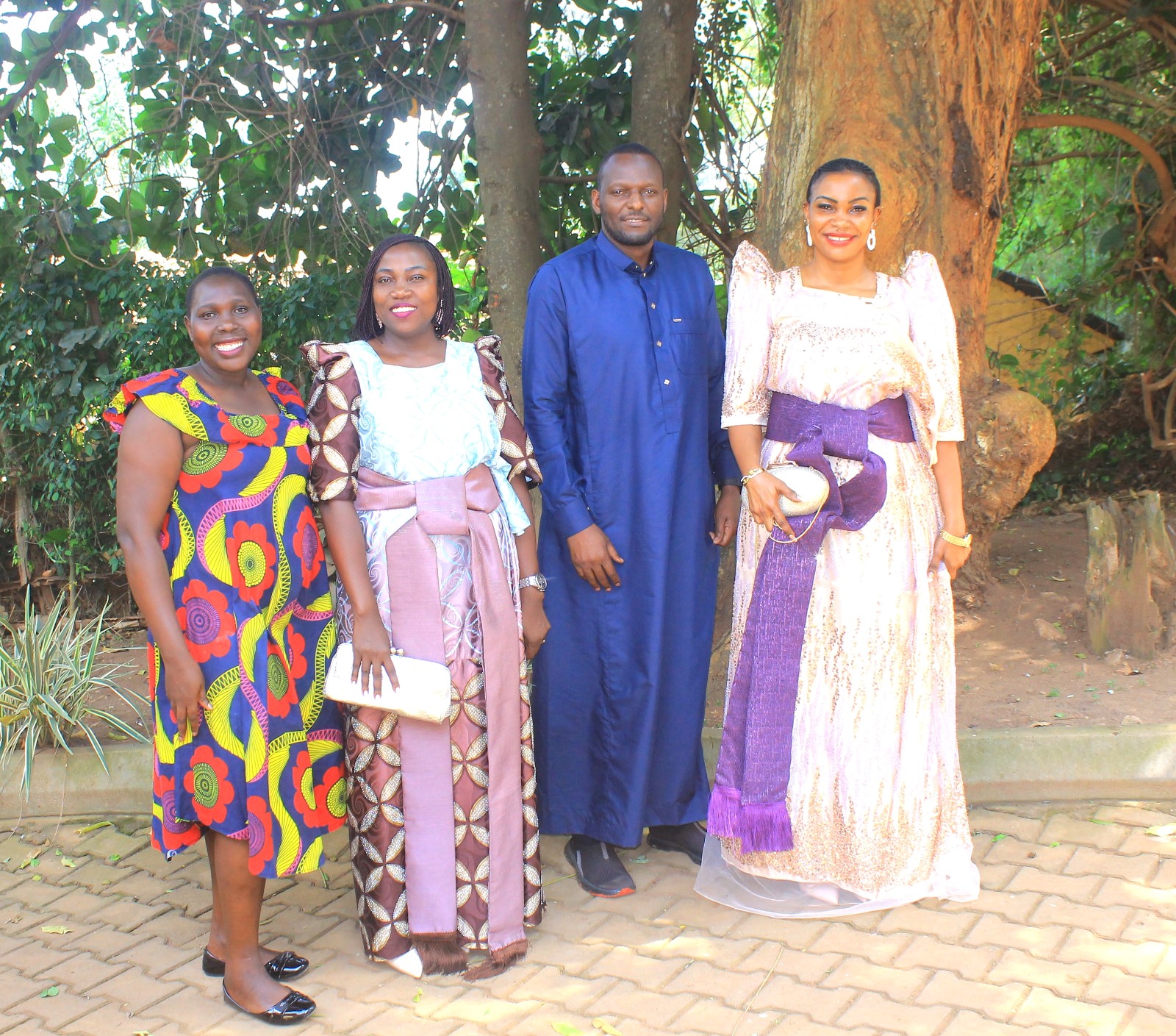
The event also featured a vibrant showcase of cultural attire, accompanied by traditional songs and dances. Attendees enjoyed cultural dress modelling, engaging performances, art displays, and interactive quizzes, culminating in exciting prizes awarded to outstanding performers. This diverse array of activities contributed to a rich celebration of creativity and cultural exchange.
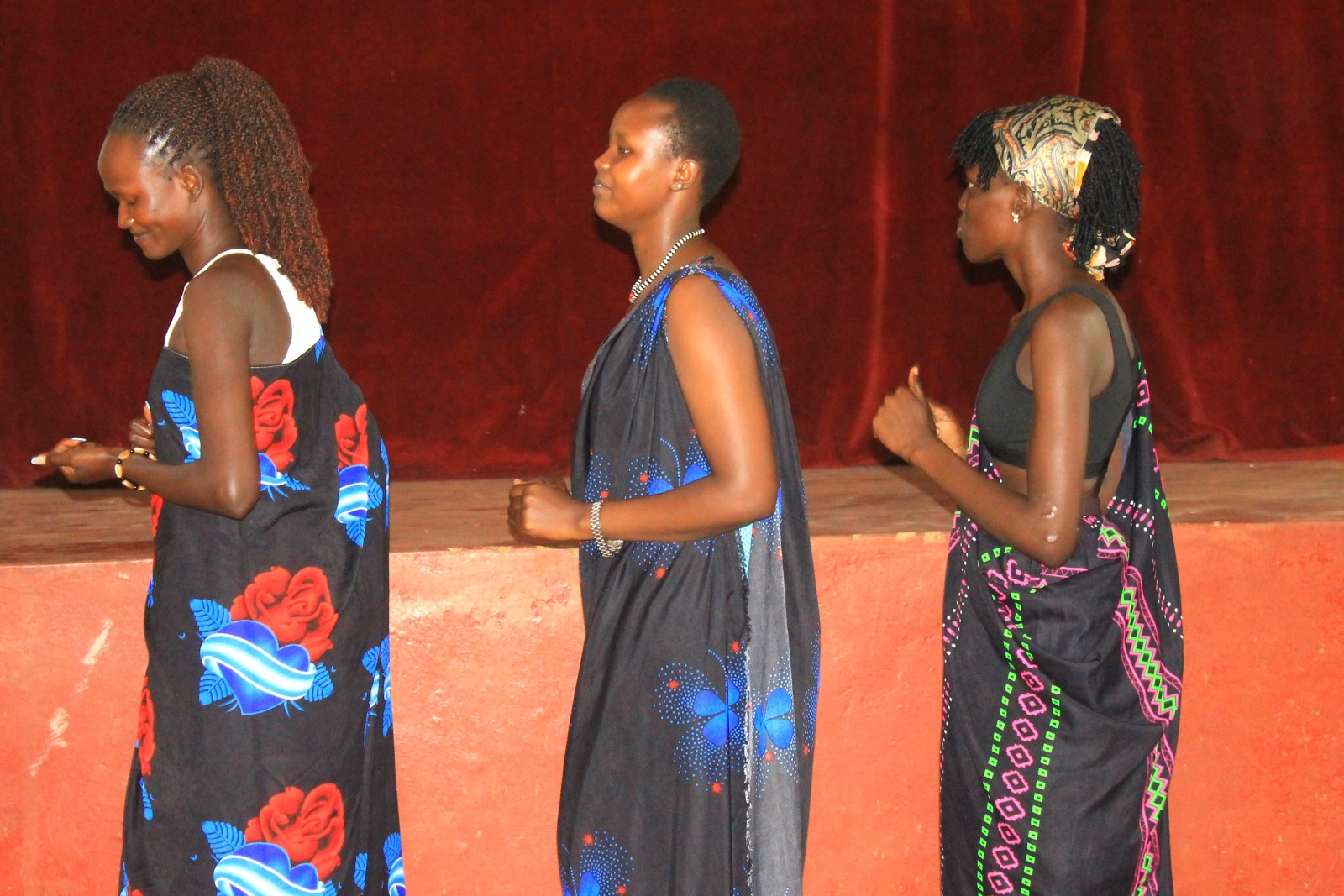
The Mastercard Foundation Scholars Program at Makerere University is committed to fostering holistic development, community building, and leadership among Scholars. At the start of each semester, the Program Team hosts a cultural dinner to reconnect the Scholars community, share key Program updates, and create an inclusive space to strengthen belonging and engagement. The cultural dinner is a critical platform for raising awareness of the need to appreciate and respect cultural diversity.
Bernard Buteera is the Principal Communications Officer for the Mastercard Foundation Scholars Program at Makerere University.
More Photos from the Dinner
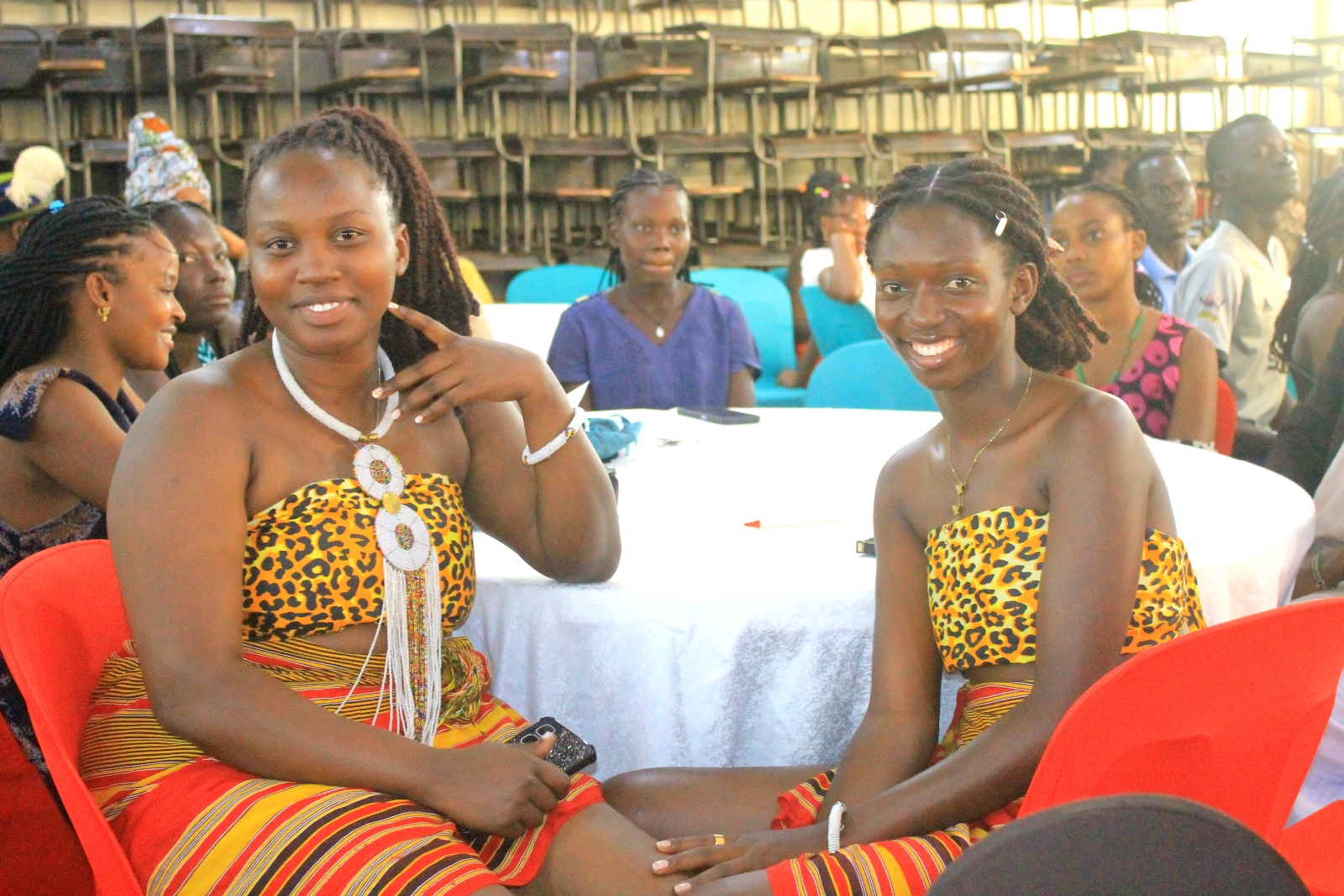
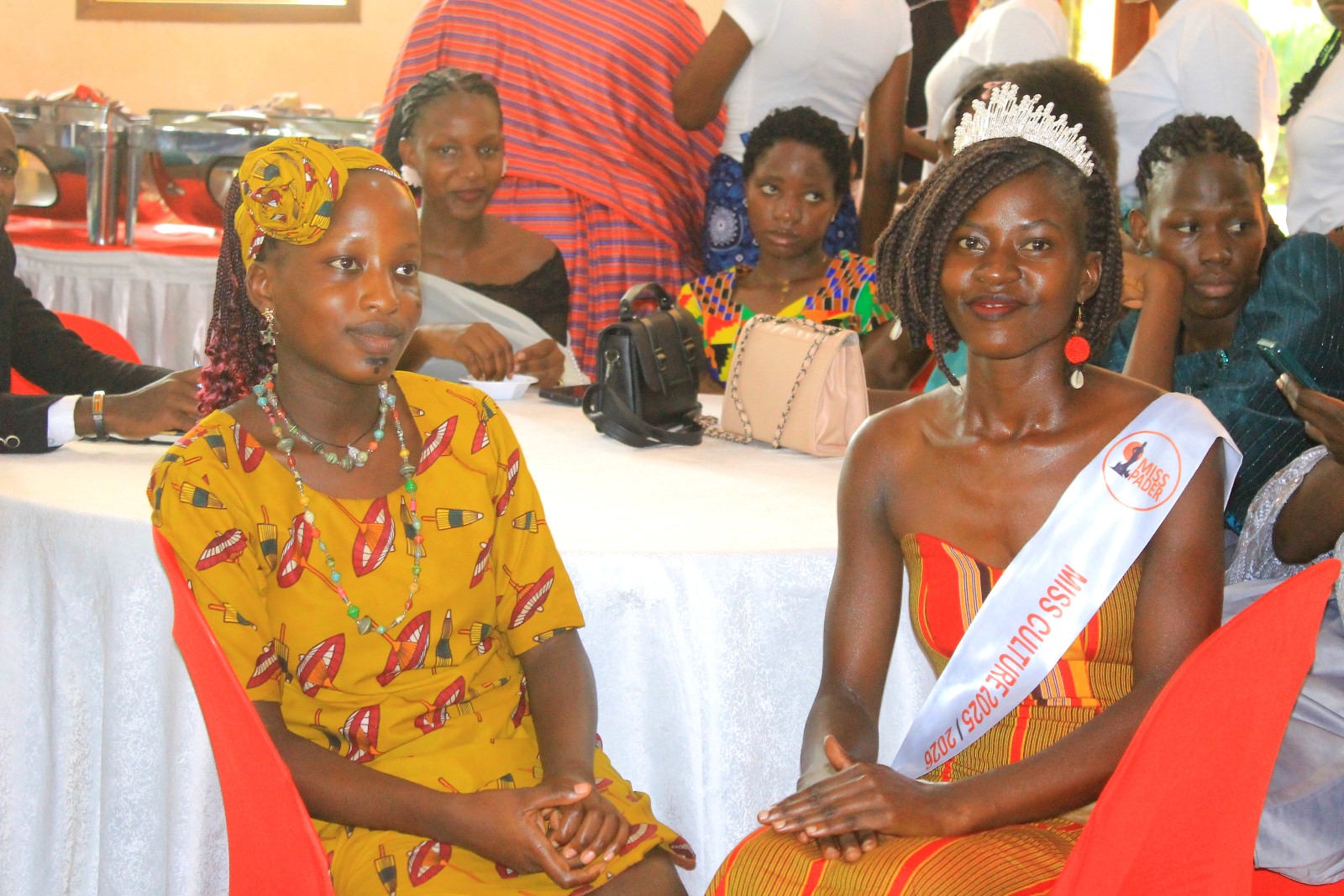
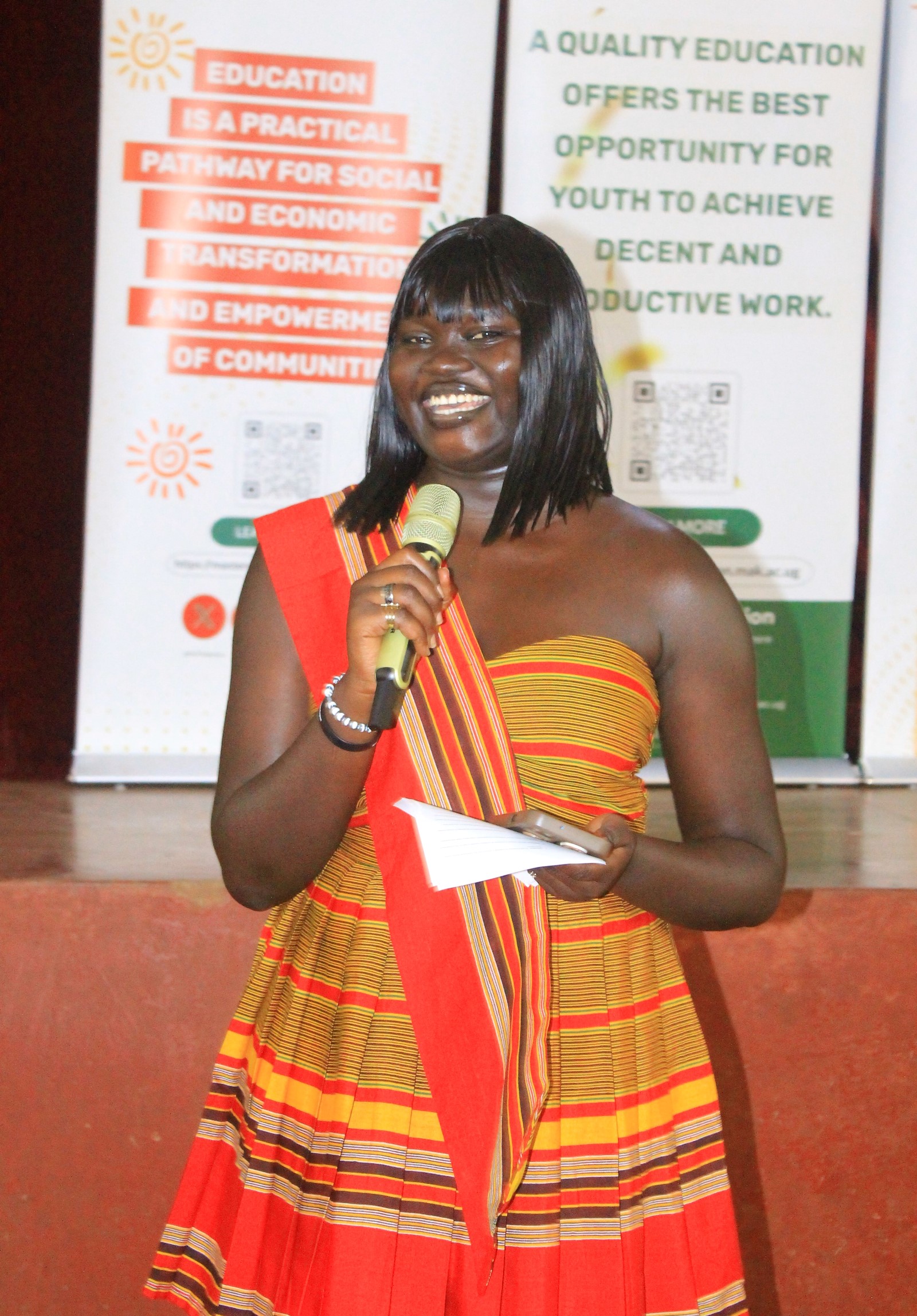
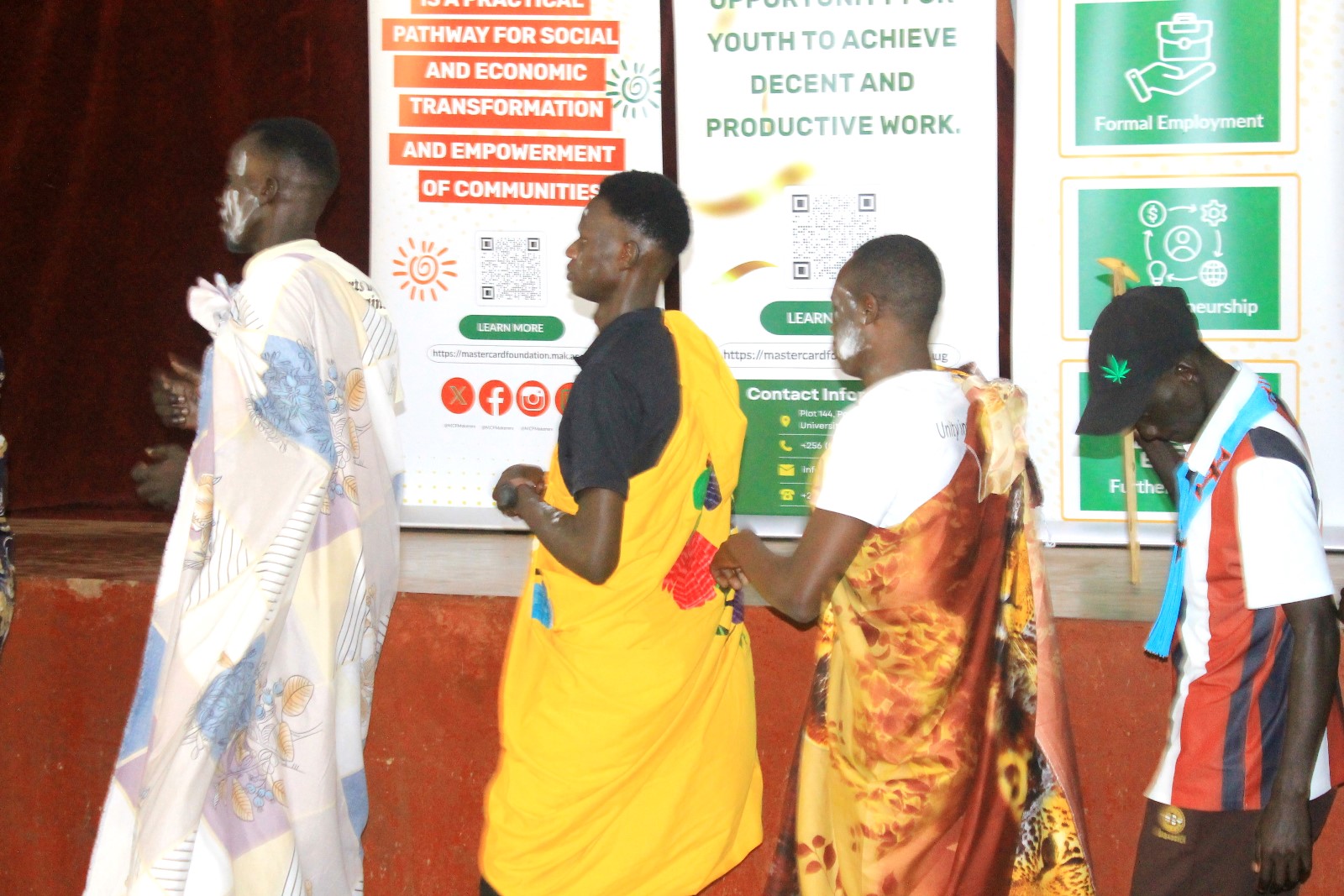
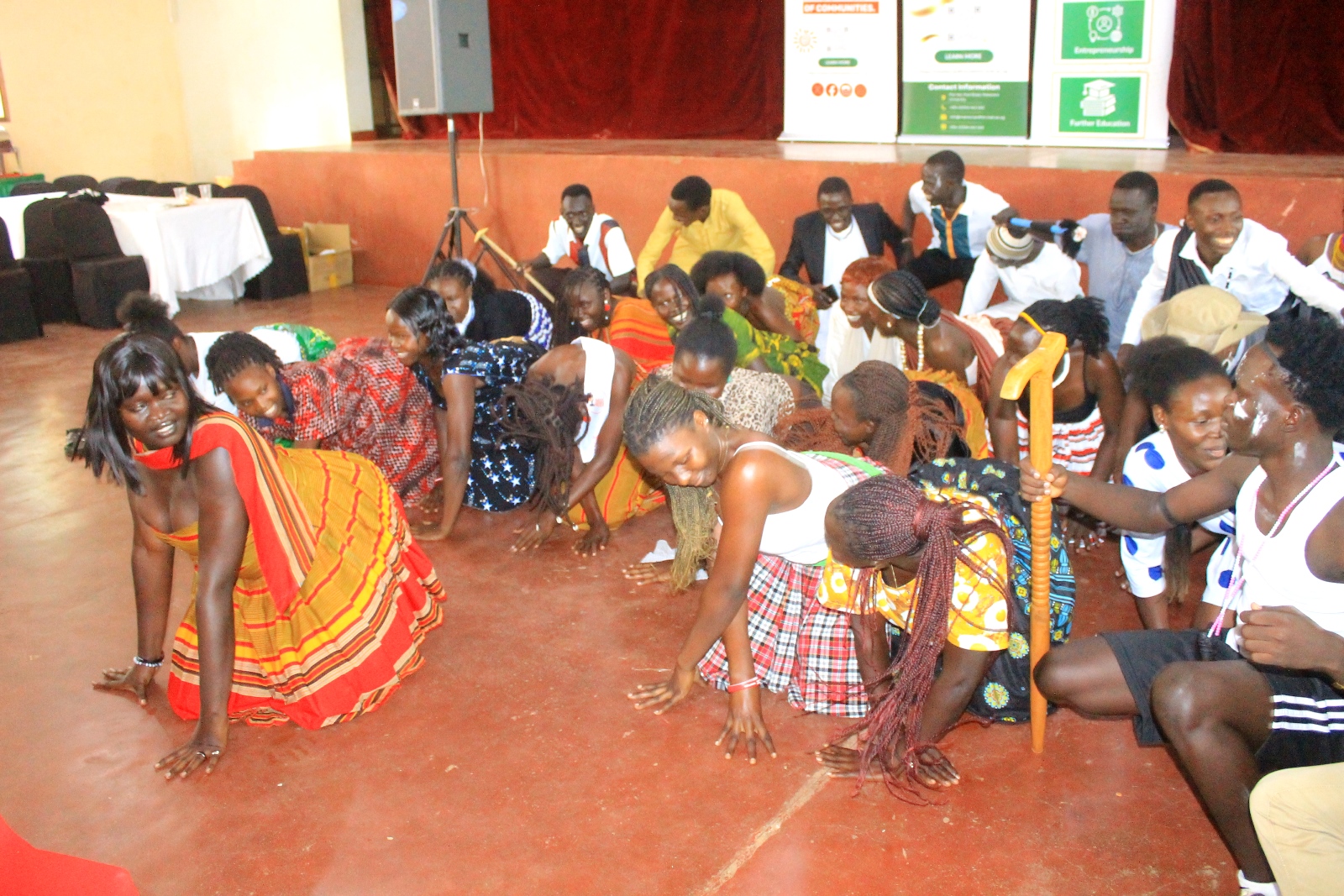
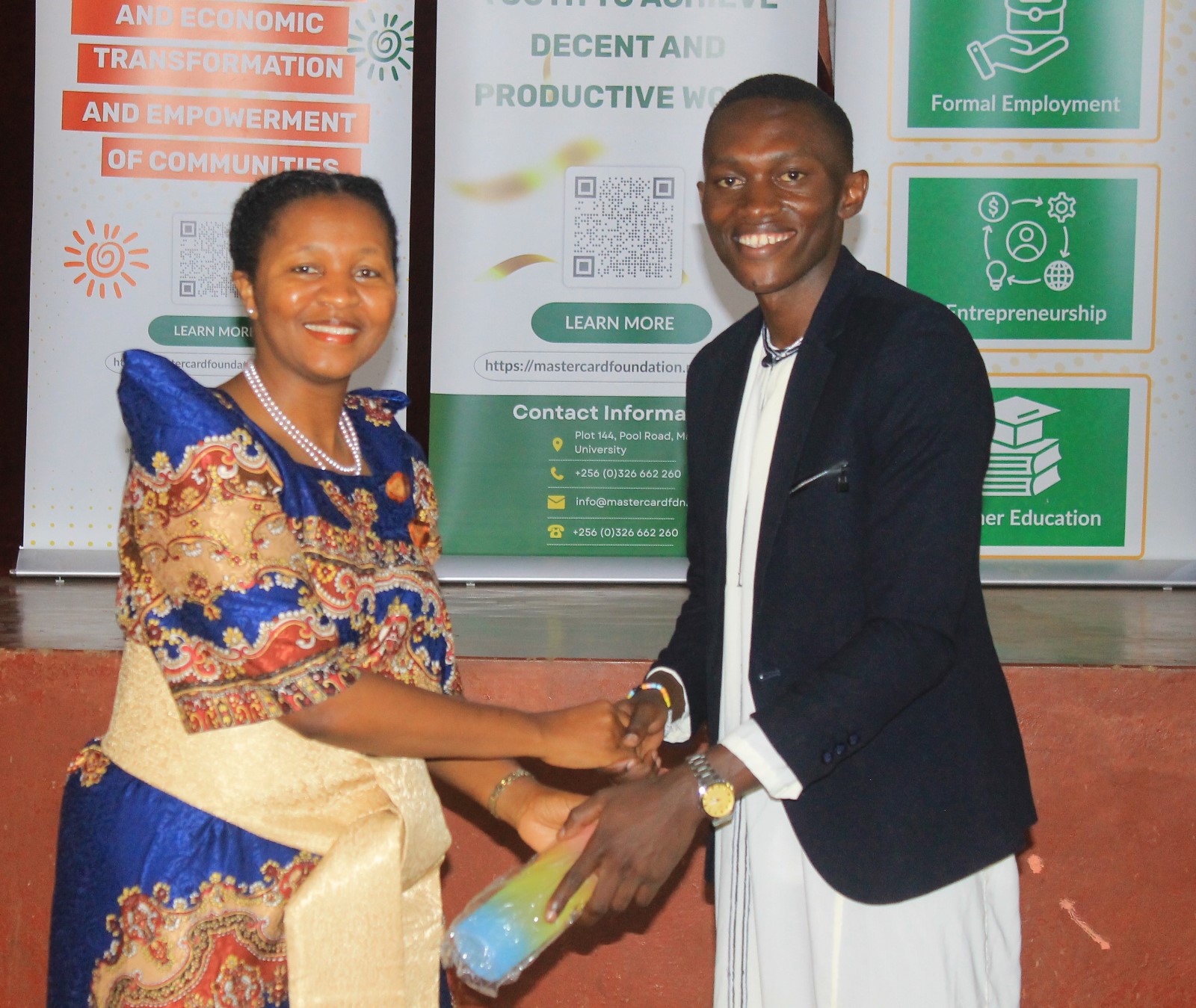
General
Support Staff Trained to Promote Safety of Students and Stakeholders
Published
2 days agoon
February 18, 2026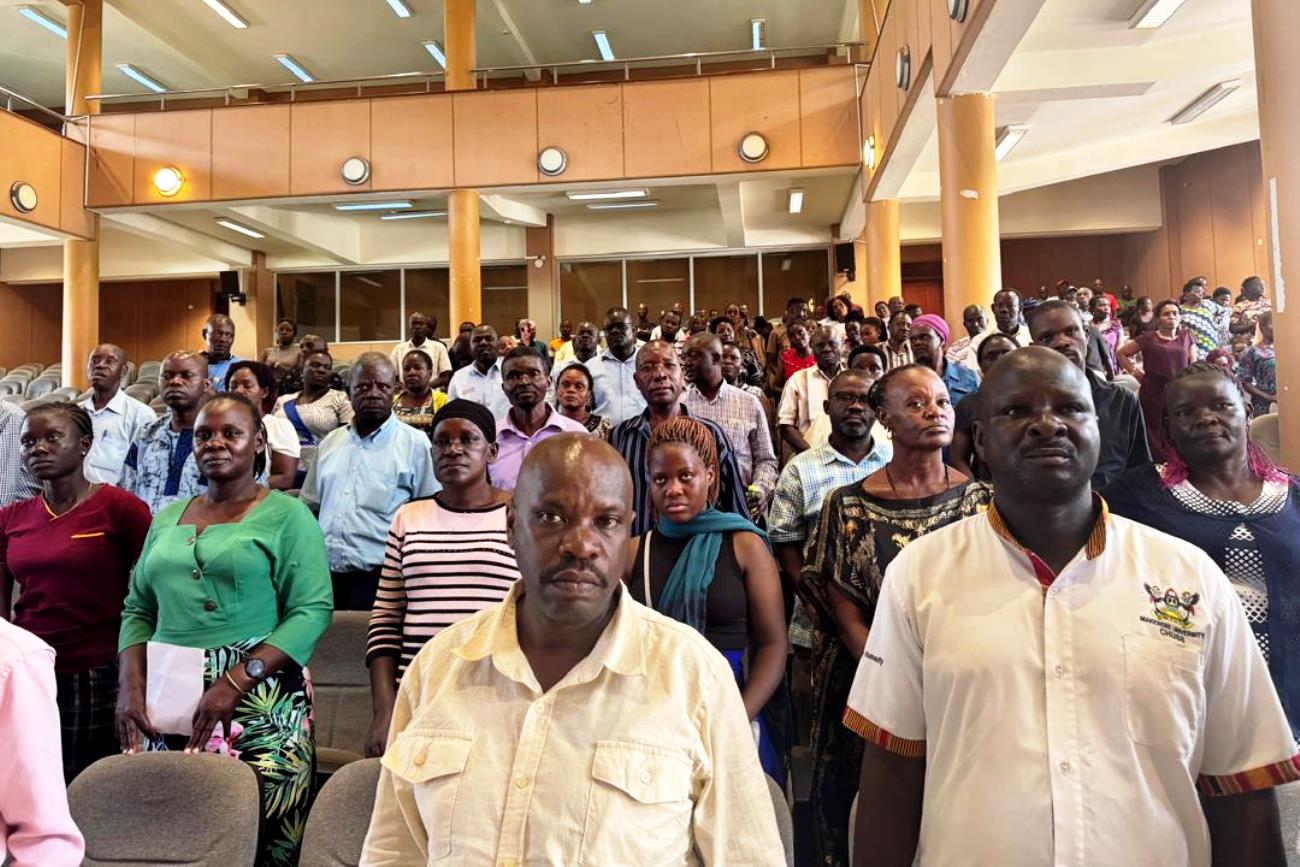
The degree of attentiveness was at its peak in the Yusuf Lule Central Teaching Facility (CTF) Auditorium as Ms. Janet Nabukeera addressed support staff during a Safeguarding and Inclusion training. Her words were firm, direct and reflective. Ms. Nabukeera, the Deputy Human Resource Officer in charge of Performance and Payroll, emphasized that a negative attitude in the workplace creates a toxic environment where colleagues feel hesitant to collaborate or share ideas.
“Avoid unnecessary confrontations with colleagues because jealousy and anger destroy more than they build. When you hold grudges at work, you slowly burden your own heart and mind. Stress can take a toll on your health and productivity. Safeguard yourself by choosing peace, love yourself first and extend that same grace and respect to others.” Ms Nabukeera, cautioned.
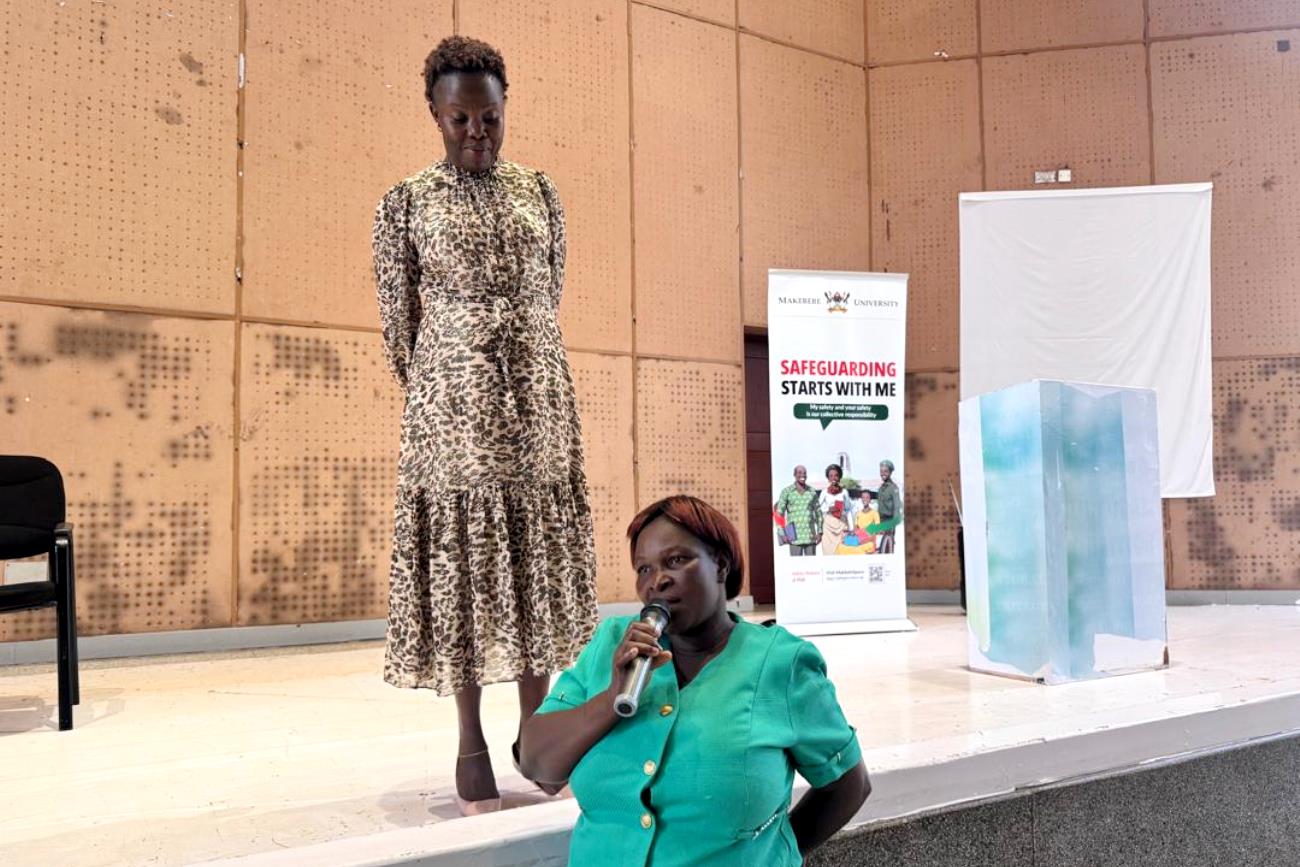
The training attracted over 300 Support Staff Members, including Security Personnel, Cleaners, Hall Attendants, Administrative Assistants, Librarians, and Laboratory Support Teams from across the University.
In his remarks, Dr. Rodney Rugyema, the Acting Principal Warden, urged staff to have a positive attitude towards their jobs and encouraged them to ensure that students, fellow staff and visitor’s feel safe, respected and protected.
“You are the eyes and ears of the University, while you may not deliver lectures, you are often the first to notice when something is wrong. So you have to promote an environment free from bullying, discrimination, neglect and intimidation. You have to ensure secure hostels, well-lit walkways, functioning locks and safe laboratory environments,” Dr Rugyema, said.
Makerere University has a duty of care to do no harm and promote the wellbeing of all students, staff, and other University community stakeholders. It seeks to enhance the learning environment to make it more secure, inclusive, and ethically sound for all stakeholders.
The Makerere University Safeguarding Policy lays out the University’s framework for embedding viable safeguarding measures into its ethos and all institutional activities and processes to: Identify, detect, and swiftly act on safeguarding risks; prevent the occurrence of harm; provide mechanisms for reporting all allegations or incidents that have occurred; respond appropriately to all reported incidences; and, continuously monitor, evaluate and learn from practices and experiences of managing safeguarding concerns.
“Safeguarding is not only for lecturers or University Management, it is everyone’s responsibility, If you have someone mistreating you, or you come across any risk, do not suffer in silence report through the MakSafeSpace,” Dr Rugyema, said.

The MakSafeSpace is the e-reporting platform complimenting the other University traditional reporting channels. It is an inclusive platform that provides for confidential modes of reporting safeguarding risks and incidences.
As the session concluded, there was a renewed understanding among participants that safeguarding is a collective duty. From the security guard at the gate to the cleaner in the Hall of Residence, it was clear that every staff member contributes to creating a safe and respectful learning environment.
To involve and create opportunities for students and staff members with disabilities, Light for the World Uganda trained the support staff to become inclusion champions.
Mr. Musa Mwambu, the Disability Inclusion Advisor at Light for the World Uganda, called upon staff to remove barriers limiting the full participation of students and colleagues with disabilities, in line with the UN Convention on the Rights of Persons with Disabilities.
“Just like any other person, people with disabilities have the right to education, health, and protection. Society has the duty to remove barriers that block participation. When barriers are removed, disability no longer limits opportunity,” Mr. Mwambu noted.
Drawing from his own lived experience as a person with a disability, he shared how access to the right support systems enables him to communicate effectively and perform daily tasks.
“It is about putting the right conditions in place to participate fully in society. We need multi-stakeholder collaboration to remove barriers and achieve an inclusive society,” he said.
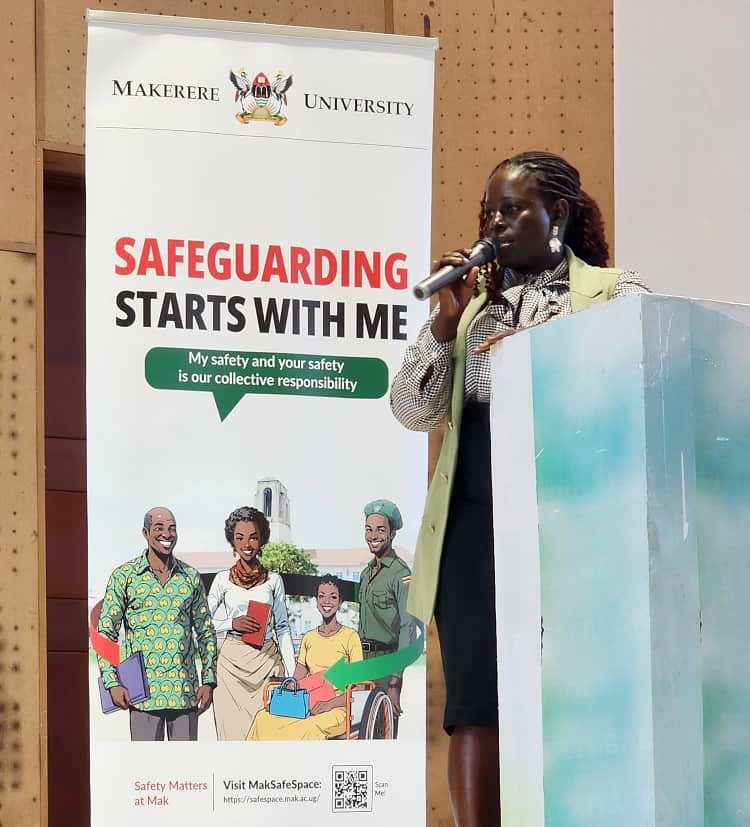
Justine Namuddu, the Support Staff representative on the Makerere University Council, thanked the organizers for the insightful workshop. She reminded fellow staff that Makerere University is a home for everyone and urged them to take care of it.
“Fellow members, as you carry out your duties, ensure that you observe both emotional and intellectual safety. Before sharing information, first verify whether it is true. Safety is being at peace with yourself and with others,” Namuddu emphasized.
She also encouraged younger staff members to take advantage of educational opportunities provided by the University, noting that those who wish to continue with their studies may apply for tuition waivers.
The training concluded with reminders on professionalism and accountability. Staff were encouraged to consistently use the Biometric Attendance Management System to capture attendance accurately. With biometric clock-in devices installed at reception areas across the Main and Satellite campuses, the Directorate of Human Resources can monitor attendance in real time, while staff can keep track of hours worked.
Trending
-

 General1 week ago
General1 week agoAptitude Exam (Paper 1) Results for the Mature Age Entry Scheme 2026/2027
-

 Health2 weeks ago
Health2 weeks agoHow Jimmy Osuret Turned Childhood Trauma into Evidence for Safer School Crossings
-

 General1 week ago
General1 week agoFor Youth by Youth – Call for Second Cohort Applications
-

 Health2 days ago
Health2 days agoUganda has until 2030 to end Open Defecation as Ntaro’s PhD Examines Kabale’s Progress
-

 Health1 week ago
Health1 week agoCall for Applications: Short Course in Molecular Diagnostics March 2026
